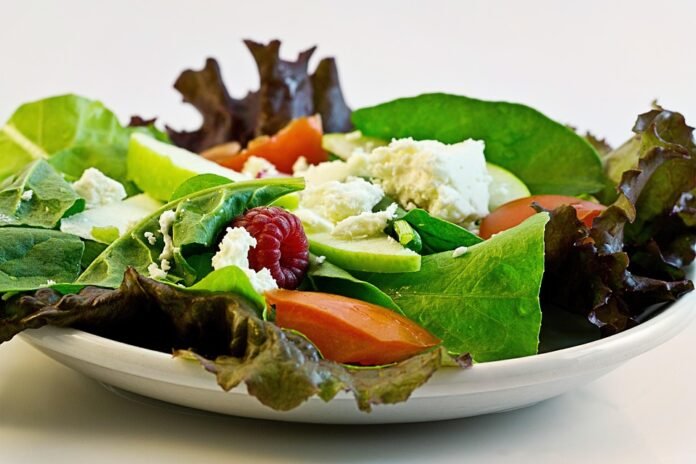Of course! Here is an article about focusing on diet and nutrition.
Beyond the Scale: How a True Focus on Diet and Nutrition Can Transform Your Life
In a world saturated with quick-fix diets, “miracle” supplements, and conflicting health advice, it’s easy to feel lost. The conversation around food has become cluttered with rules, restrictions, and guilt. But what if we stripped it all back? What if we shifted our focus from dieting to nourishing?
A true focus on diet and nutrition isn’t about deprivation or achieving a specific number on a scale. It’s about providing your body with the high-quality fuel it needs to function at its absolute best. It’s about building a foundation for long-term health, vibrant energy, and mental clarity. This is your guide to cutting through the noise and focusing on what truly matters.
The “Why”: More Than Just Weight Loss
While weight management can be a positive outcome of better eating, the benefits of a nutrient-dense diet run much deeper.
- Sustained Energy: Forget the 3 p.m. slump. A balanced diet of complex carbohydrates, lean protein, and healthy fats provides a steady release of energy throughout the day, preventing the sharp peaks and crashes caused by sugar and processed foods.
- Enhanced Mental Clarity & Mood: Your brain is a high-performance engine that requires premium fuel. Nutrients like omega-3 fatty acids, B vitamins, and antioxidants support cognitive function, memory, and focus. A healthy gut, fostered by a good diet, is also directly linked to mood regulation.
- A Stronger Immune System: Vitamins and minerals are the foot soldiers of your immune system. A diet rich in a variety of fruits, vegetables, and whole foods equips your body to fight off infections and illness more effectively.
- Disease Prevention: Chronic conditions like heart disease, type 2 diabetes, and certain cancers have strong links to diet. By focusing on whole foods, you actively lower your risk and invest in your future health.
The “What”: The Pillars of a Nutritious Diet
Instead of memorizing a list of “good” and “bad” foods, it’s more powerful to understand the core principles. Think of your plate as a toolkit for building a healthier you.
1. Prioritize Whole Foods
This is the single most important rule. A whole food is something that is as close to its natural state as possible. Think apples, not apple-flavored cereal; think chicken breast, not chicken nuggets. Whole foods are packed with the fiber, vitamins, and minerals that processed foods lack.
2. Master Your Macros
Macronutrients are the three main components of your diet that provide energy.
- Protein: The building block for everything from muscle to hormones. It helps you feel full and satisfied.
- Sources: Lean meats, poultry, fish, eggs, dairy, beans, lentils, tofu, nuts.
- Carbohydrates: Your body’s preferred source of fuel. The key is to choose the right kind. Focus on complex carbs, which release energy slowly.
- Sources: Whole grains (oats, quinoa, brown rice), starchy vegetables (sweet potatoes, corn), beans, and legumes.
- Fats: Not the enemy! Healthy fats are essential for brain health, hormone production, and absorbing certain vitamins.
- Sources: Avocados, olive oil, nuts, seeds, and fatty fish like salmon.
3. Eat the Rainbow
The different colors in fruits and vegetables represent different vitamins, minerals, and antioxidants. By eating a wide variety of colors, you ensure you’re getting a broad spectrum of nutrients. Aim to get a few different colors on your plate at every meal.
4. Hydration is Non-Negotiable
Water is crucial for every single process in your body—from digestion to temperature regulation to brain function. Dehydration can masquerade as hunger, fatigue, and brain fog. Keep a water bottle handy and sip throughout the day.
The “How”: Making It a Sustainable Lifestyle
Knowledge is only powerful when it’s put into action. The goal is to build habits that last a lifetime, not to suffer through a 30-day challenge.
- Start Small: Don’t overhaul your entire diet overnight. Pick one or two manageable changes. Swap soda for water, add a side salad to your dinner, or switch from white bread to whole-grain. Small wins build momentum.
- Plan Ahead: The enemy of a healthy diet is an empty fridge at 6 p.m. Take 30 minutes on the weekend to plan a few meals and make a grocery list. Even better, try some simple meal prep, like chopping veggies or cooking a batch of quinoa.
- Practice Mindful Eating: Slow down. Turn off the TV. Pay attention to the flavors and textures of your food. Listen to your body’s hunger and fullness cues. This simple practice can prevent overeating and improve digestion.
- Embrace the 80/20 Rule: Perfection is not the goal; consistency is. Aim to eat nourishing foods 80% of the time. For the other 20%, allow yourself the flexibility to enjoy a piece of cake at a birthday party or pizza night with the family, guilt-free. This balance is what makes healthy eating sustainable.
Your Journey, Your Focus
Focusing on diet and nutrition is one of the most powerful forms of self-care. It’s a continuous journey of learning what makes your body feel its best. Let go of the pressure to be perfect and instead embrace the process of nourishing yourself from the inside out.
Your journey to better health starts not with a radical diet, but with a single, focused choice to fuel your body well. Make that choice today. Your future self will thank you.

